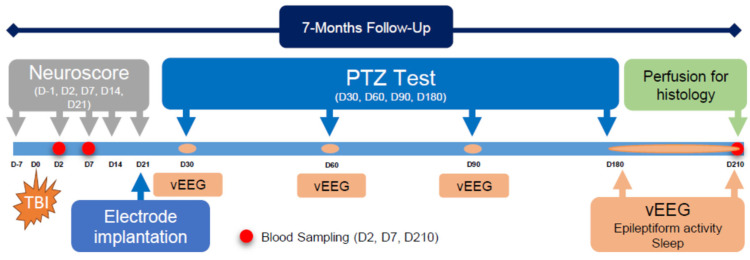Figure 1.
Study design: Epileptogenesis was triggered by lateral-fluid-percussion-induced traumatic brain injury (TBI, injury day (D) 0). The composite neuroscore test was performed at baseline (before TBI), and then on D2, D7, D14, and D21 post-TBI. Tail vein blood was sampled on D2 (48 h), D7, and D210 after TBI (data not shown). Epidural cortical electrodes were implanted on D21. Seizure susceptibility was assessed with the pentylenetetrazol (PTZ, 25 mg/kg, intraperitoneally) test on D30, D60, D90, and D180. Video electroencephalography (vEEG) was monitored starting 24 h before, during, and for 24 h after each PTZ test. During the 7th post-injury month (D180–D210), animals were continuously monitored via vEEG to detect spontaneous seizures and record sleep. At the end of the monitoring, animals were perfused for histological analysis.

